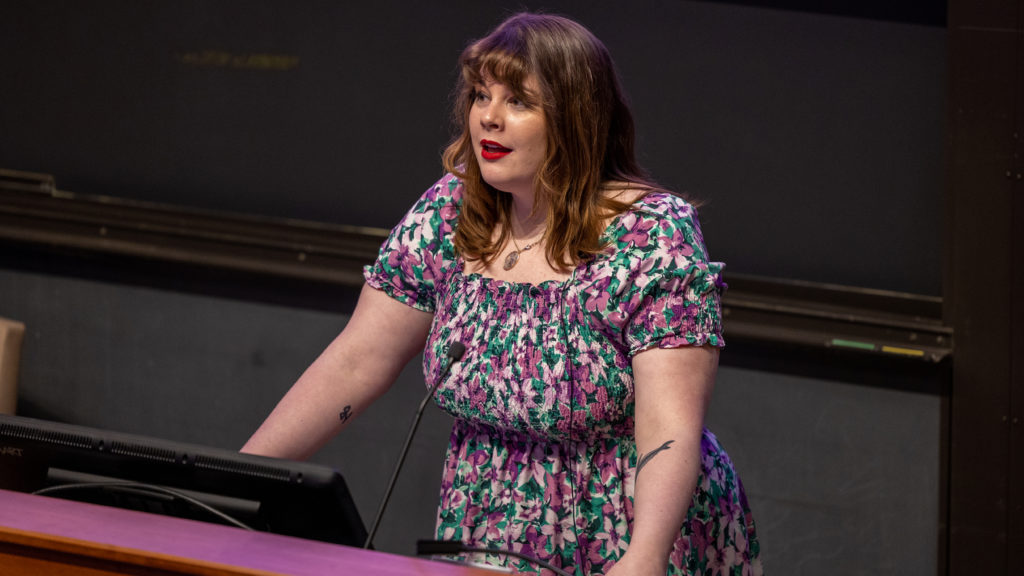
by Bailey Merlin
When I started my master’s degree program at Harvard Medical School, I wanted to study the loneliness epidemic.
Upon starting my research, I quickly realized that the LGBTQ+ community was more than twice as likely to experience loneliness than their heterosexual counterparts. Looking closer at the numbers, I was stunned to see how many respondents identified as bisexual. The margin was wide, which comes as no surprise now as more than half of the LGBTQ+ community identifies as bisexual. Still, I was shocked since I, a bisexual, had only met five people who also identified as bi. Surely, there couldn’t be so many of us.
But there were. Millions. There are so many bisexuals that we would have more voting power than Pennsylvania if we were all in the same state. Imagine that, a swing state.
My project shifted from loneliness to how bisexual erasure and biphobia impact healthcare outcomes. I knew they were connected, but I struggled to find papers on the subject, to find scholars of bisexuality. When I reached out to the humanities departments, I was told with a shrug that they couldn’t think of any bisexual journals (other than the Journal of Bisexuality) or researchers that I could reach out to for more information. Bisexuals, according to them, just weren’t something people were writing about.
I knew that couldn’t be true. So, I started looking for queer researchers at Harvard and for bisexual organizers in Boston. I wanted to talk to people who identified as bi+ about their experiences in the healthcare system. Fortunately, the Bisexual Resource Center (BRC) was receptive to my email, and many of their board members agreed to speak with me. It was the first time in my life that I ever felt well and truly welcomed by a queer organization.
Over the next few months, I met with over forty participants, all of whom identified as bi+, about their identity, their experiences with or without queer community, bisexual erasure, biphobia, and healthcare. What became clear to me was the fact that most bi+ folks don’t feel like they have access to a bisexual community. From a qualitative perspective, I can say that those bi+ folks without community were more likely to have had previous traumatic healthcare experiences and/or were chronically ill.
At the end of my master’s, I had written a capstone paper about bisexual erasure and its devastating effects on bi+ people and a series of essays based on my interviews that I hoped to publish because they shined a light on the bi+ experience I hadn’t seen before. Six months later, the works are unpublished because people aren’t interested in bisexual health outside of bisexual groups. As bisexual organizations continue to grow and more and more young people identify as bisexual, I hope that changes.
—
Bailey Merlin is the author of A Lot of People Live in This House and a bi+ activist with a background in media, medicine, and health. She holds an MFA from Butler University and an MS from Harvard Medical School. Her writing has been published in literary magazines such as The Lascaux Review, ellipses…, Honeyfire Literary Magazine, Bandit Fiction, Anti-Heroin Chic, Chantwood Magazine, Drunk Monkeys, Dime Show Review, Streetlight Magazine, Into the Void, among others. Based in Boston, Bailey lives in an intentional community with a dynamic cast of humans, a toddler, a dog, a cat, and a friendly ghost. You can find her work on baileymerlin.com.